What Was The Originaldefining Philosophy Of The Juvenile Justice System
What was the originaldefining philosophy of the juvenile justice system. Since 1899 the juvenile justice system has continued to be defined in part by the tension between a humanitarian philosophy rehabilitate the offender and a control philosophy punish the. The juvenile justice system is comprised of separate sentencing guidelines court structures juvenile secure and non-secure detention facilities juvenile probation officers and statutes that define delinquency and status offenses which are age-related offenses. This system was to differ from adult or criminal court in a number of ways.
What was the original defining philosophy of the juvenile justice system. The safety of society b. Keeping the peace.
C _____ is a violation of a criminal law that. What was the original defining philosophy of the juvenile justice system. The 100 year history of the juvenile justice system in the United States has seen fundamental changes in certain aspects of process and philosophy.
Keeping the peace d. Developed in the late 1800s the juvenile justice system was designed to be distinct from the adult criminal justice system. While similar to that of the adult criminal justice system in many waysprocesses include arrest detainment petitions hearings adjudications dispositions placement probation.
Those standards in summary stated that a juvenile court should have broad jurisdiction over persons under the age of eighteen be presided over by a specially trained judge maintain informal procedure and private hearings keep detention at a minimum and preferably in private boarding homes be comprised of a highly qualified probation staff have resources for individual and specialized. What does humanitarian philosophy mean in the juvenile justice system. What was the original defining philosophy of the juvenile justice system At the end of the 19th century economic modernization transformed america from a rural society to an urban industry.
The best interest of the child which of the following is a characteristic of juvenile courts but not adult criminal court. The very foundation of the philosophy represented by the juvenile court. The purpose of juvenile justice is to rehabilitate youngsters not punish them.
Since that time a number of reforms - aimed at both protecting the due process of law rights of youth and creating an aversion toward jail among the young - have made the juvenile justice system more comparable to the adult system a shift from the United States original intent. Court orders should be aware of the youths special circumstances and needs.
Since 1899 the juvenile justice system has continued to be defined in part by the tension between a humanitarian philosophy rehabilitate the offender and a control philosophy punish the.
Developed in the late 1800s the juvenile justice system was designed to be distinct from the adult criminal justice system. Those standards in summary stated that a juvenile court should have broad jurisdiction over persons under the age of eighteen be presided over by a specially trained judge maintain informal procedure and private hearings keep detention at a minimum and preferably in private boarding homes be comprised of a highly qualified probation staff have resources for individual and specialized. Keeping the peace d. The American juvenile justice system is an often-misunderstood component of our justice system. The safety of society b. What was the original defining philosophy of the juvenile justice system At the end of the 19th century economic modernization transformed america from a rural society to an urban industry. The best interest of the child How was the purpose of the first juvenile courts different from the purpose of adult criminal courts in the early 20th century. The safety of society b. What was the original defining philosophy of the juvenile justice system.
The best interest of the child How was the purpose of the first juvenile courts different from the purpose of adult criminal courts in the early 20th century. The safety of society b. Policies regarding youth offenders. The first juvenile courts operated under the philosophy of parens patriae first articulated in Prince v. His case will be handled informally through the juvenile justice system. Keeping the peace. What was the original defining philosophy of the juvenile justice system.
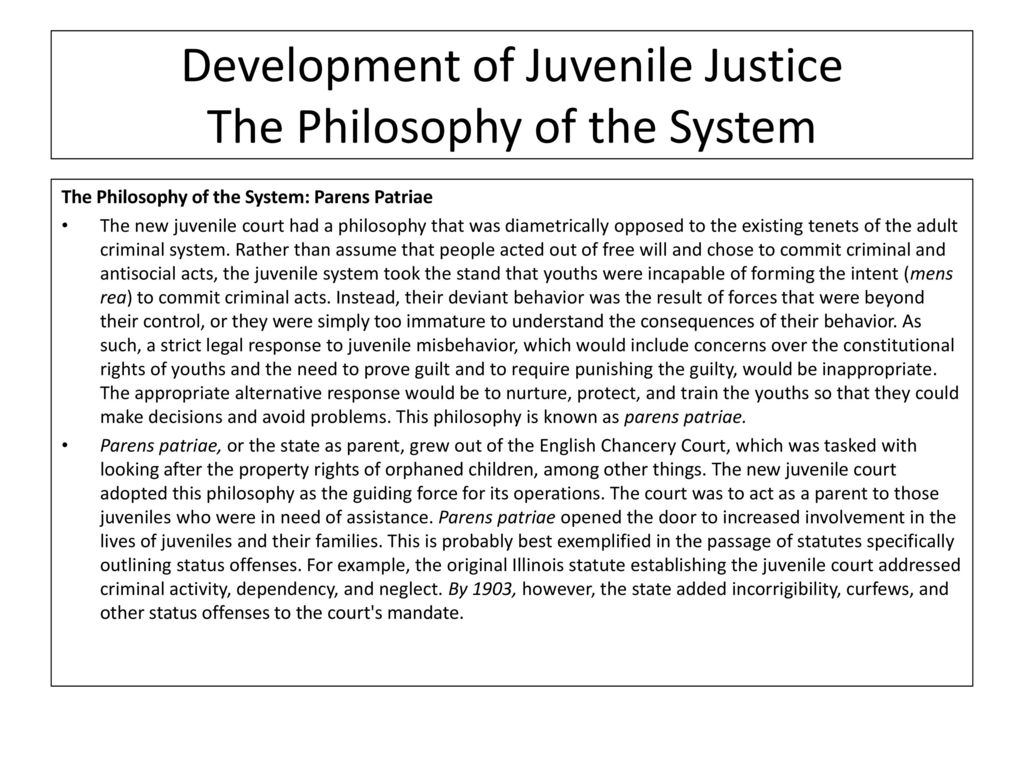
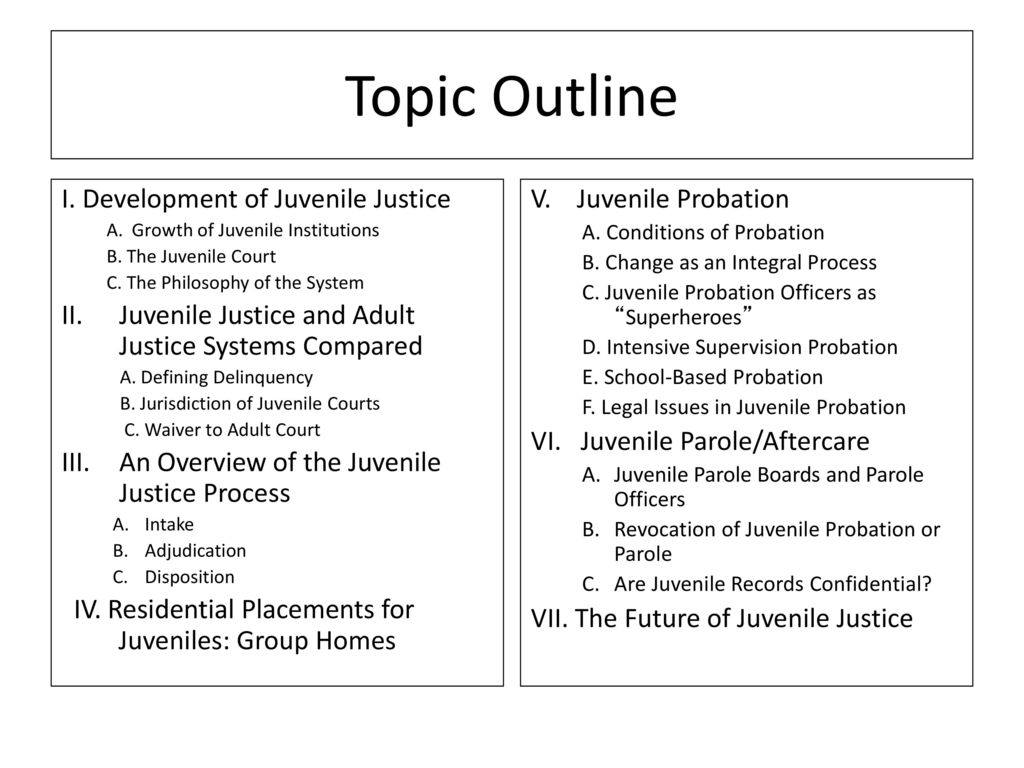
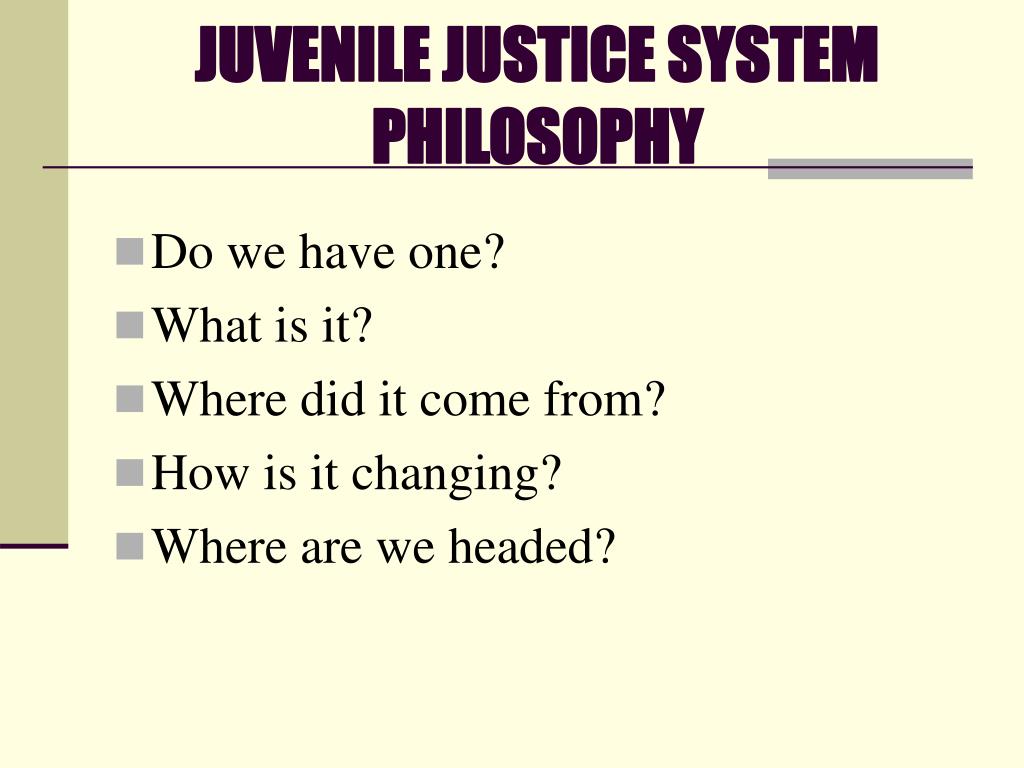
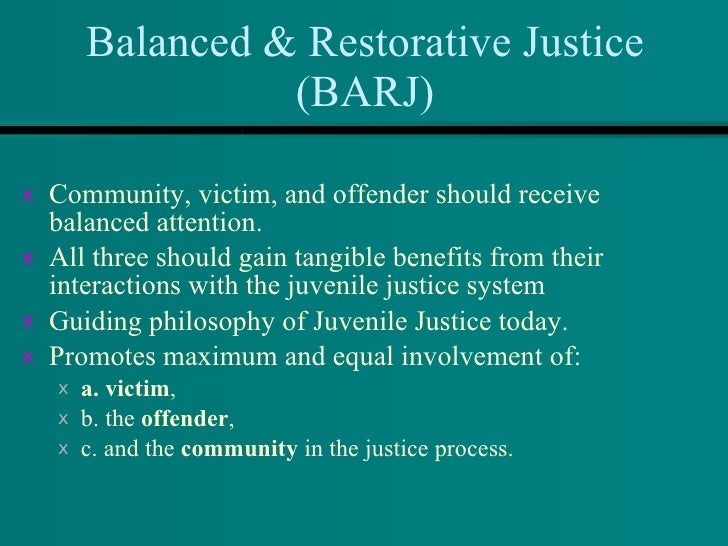
























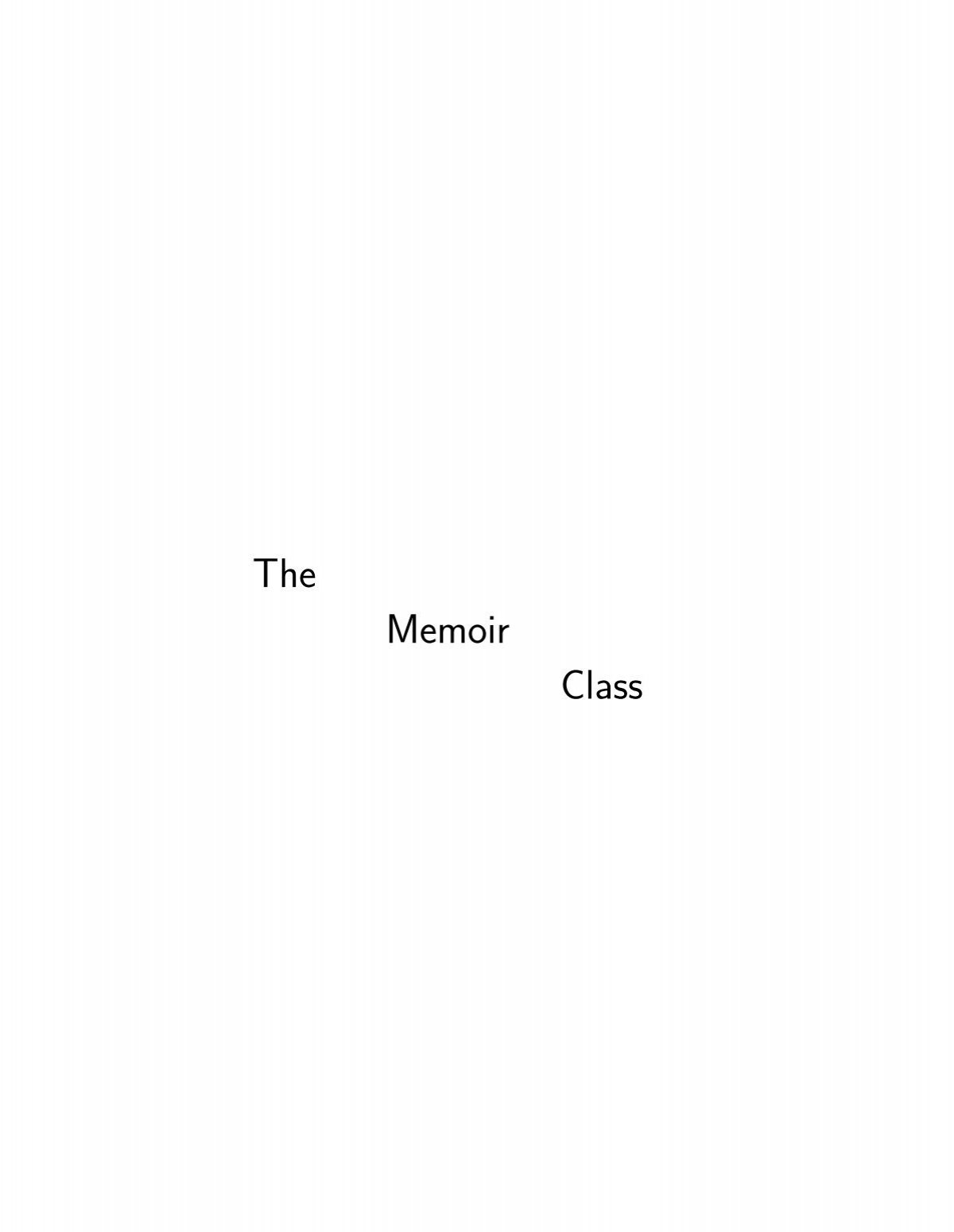




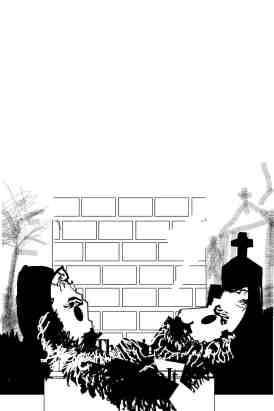
Posting Komentar untuk "What Was The Originaldefining Philosophy Of The Juvenile Justice System"